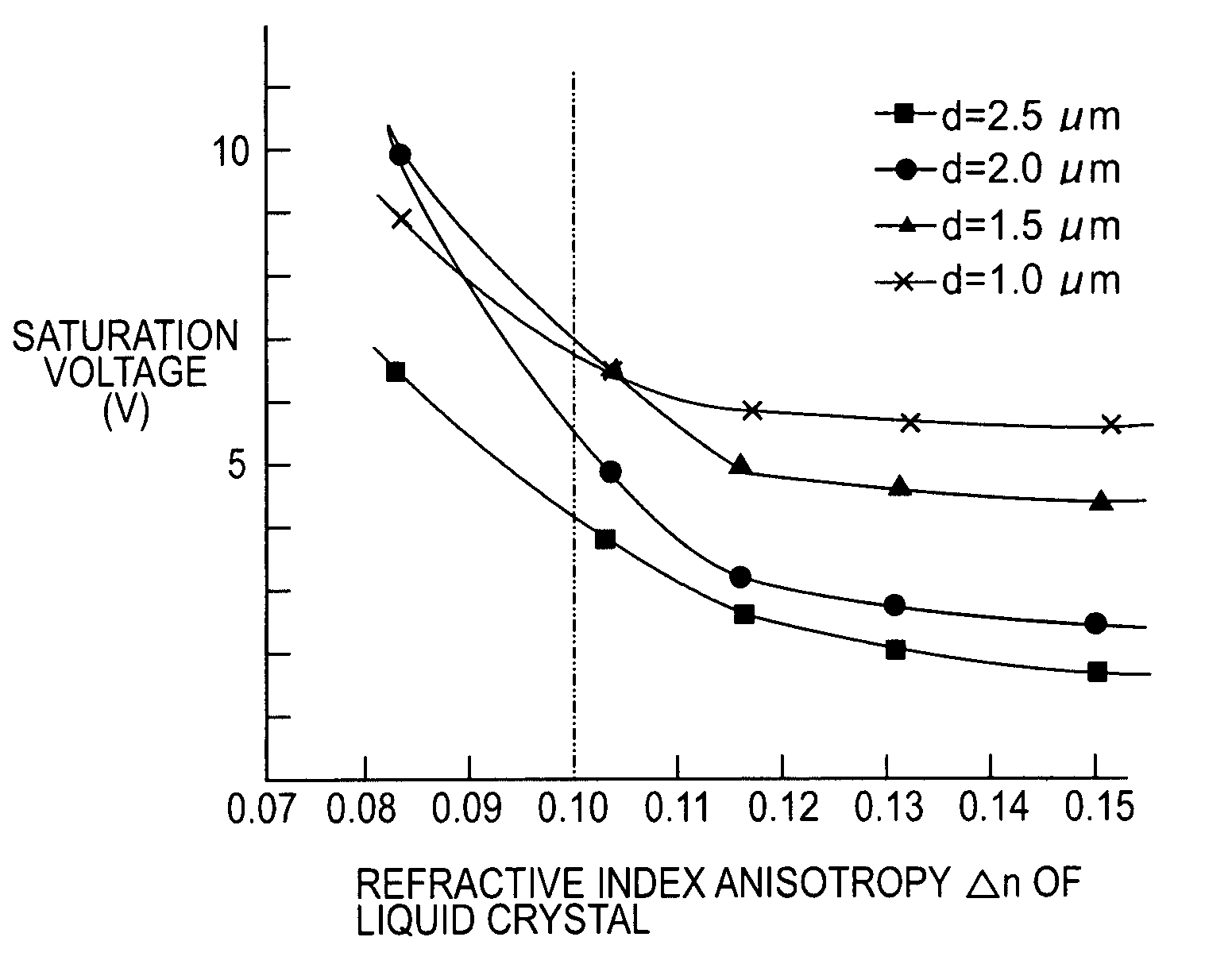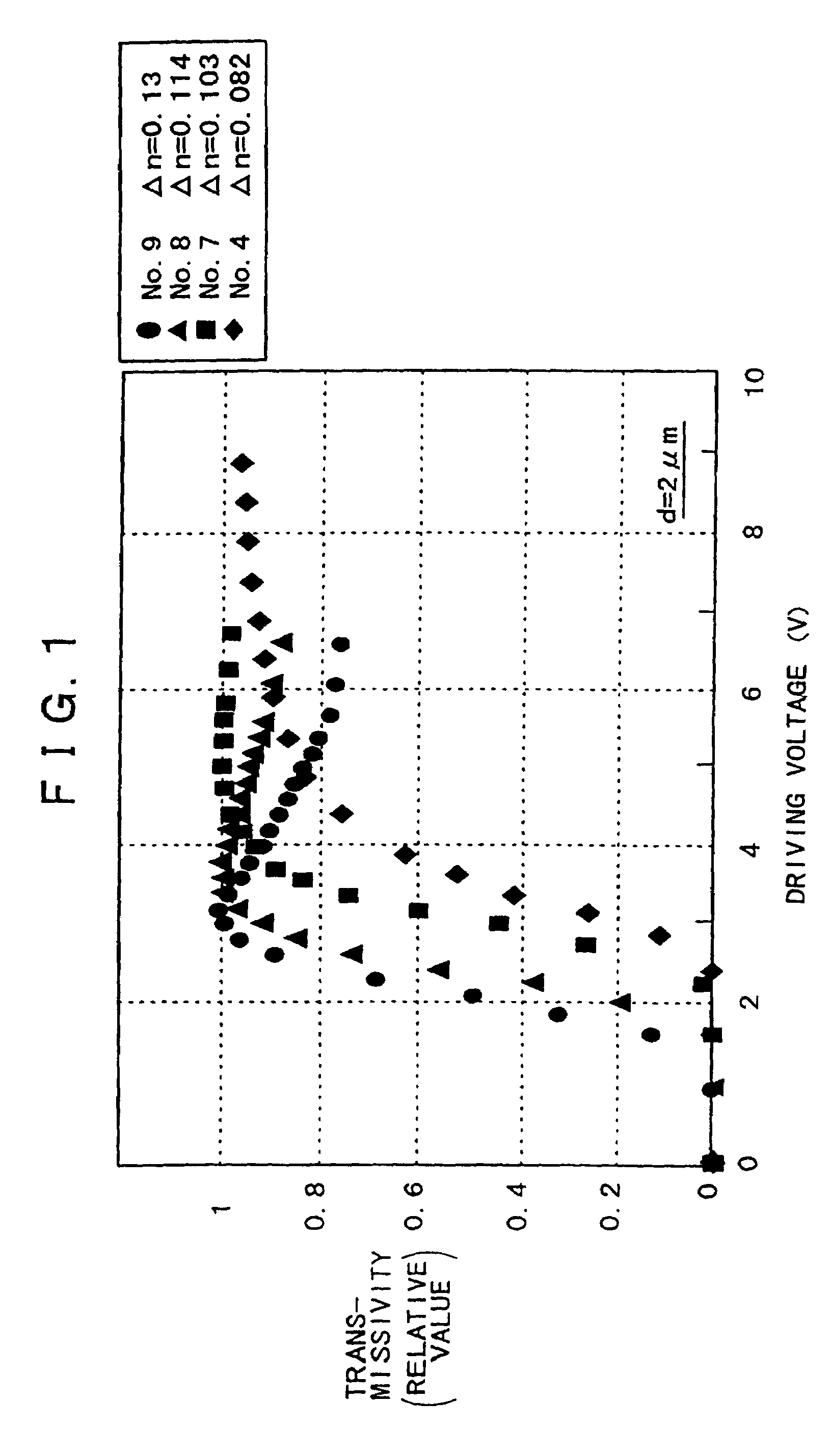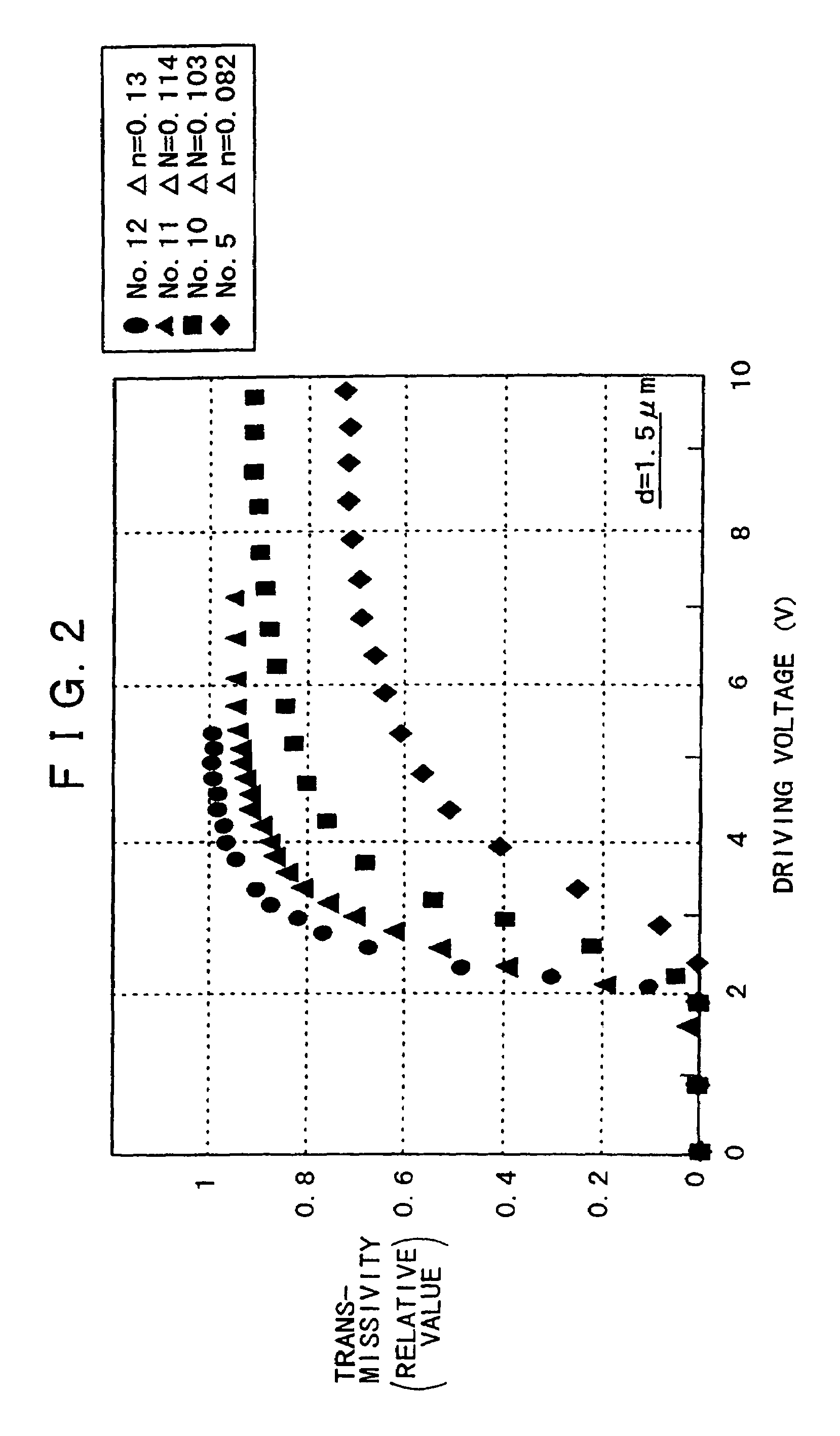Reflex liquid crystal display device, display apparatus, projection optical system, and projection display system
- Summary
- Abstract
- Description
- Claims
- Application Information
AI Technical Summary
Benefits of technology
Problems solved by technology
Method used
Image
Examples
embodiment 1
[Embodiment 1]
[0094]In the same method as adopted for Comparative example 1 mentioned above, a liquid crystal orientation film of SiO2 was formed on each of a substrate with a transparent electrode and a driving circuit substrate of silicon with an aluminum electrode, and three kinds of vertically-aligned liquid crystal materials (made by Merck Ltd.,) having a negative permittivity anisotropy Δε and a refractive index anisotropy Δn of 0.103, 0.114, 0.13, and 0.15 were injected between the two substrates to thereby produce sixteen kinds of reflex liquid crystal display devices (samples Nos. 7–15 and 20–26 in FIG. 5) where the liquid crystal layer thickness (cell gap) was 2 μm, 1.5 μm, 1 μm, and 2.5 μm respectively. The pretilt angle of the liquid crystal was so controlled as to be approximately 2.5°.
[0095]The liquid crystal driving characteristics of the devices thus produced were measured at room temperature similarly to Comparative example 1. FIGS. 1, 2 and 3 graphically show the d...
embodiment 2
[Embodiment 2]
[0098]The response speed relative to a rise time (from black to white) and a fall time (from white to black) was measured in each of the reflex liquid crystal display devices produced in Embodiment 1. The sum total thereof is regarded as the response speed of each device, and the result is shown in FIG. 5. The measurement was performed at room temperature. FIG. 4 graphically shows the thickness d of the liquid crystal layer as a function with regard to the device having Δn=0.13 as a representative example (samples Nos. 9, 12, 15, 22 with d=2.5 μm or less in FIG. 5). For comparison, FIG. 4 also shows the response speeds of the known sample No. 1 and the sample produced with d=3 μm (Δn=0.082 in each sample).
[0099]As supposed from Eqs. (1) and (2), the response speed changes substantially in proportion to the square of the thickness of the liquid crystal layer. In the device of the present invention where the layer thickness d is 2.5 μm or less and Δn is more than 0.1, it...
embodiment 3
[Embodiment 3]
[0102]The transmissivity (black level) at a zero applied voltage (black state) was measured in the reflex liquid crystal display device produced in Embodiment 1. For systematically examining the black level changes caused in relation to the thickness of the liquid crystal layer, devices having a layer thickness of 3.5 μm (samples Nos. 17–19) were produced with the aforementioned samples of Δn, and the black-level transmissivity of each device was measured together with the samples (Nos. 7–15, 20–22) of Embodiment 1. The respective black level values are graphically shown in FIG. 8 where the numerical values obtained in the devices with a layer thickness of 3.5 μm are indicated as 100% with the individual samples of Δn.
[0103]As shown in FIG. 8, the black level is extremely lowered when the liquid crystal layer becomes thinner than 2.5 μm in any sample of Δn. In the device with a layer thickness of 1.5 μm for example, the indicated black level is lower by 10 to 20% than ...
PUM
 Login to View More
Login to View More Abstract
Description
Claims
Application Information
 Login to View More
Login to View More - R&D
- Intellectual Property
- Life Sciences
- Materials
- Tech Scout
- Unparalleled Data Quality
- Higher Quality Content
- 60% Fewer Hallucinations
Browse by: Latest US Patents, China's latest patents, Technical Efficacy Thesaurus, Application Domain, Technology Topic, Popular Technical Reports.
© 2025 PatSnap. All rights reserved.Legal|Privacy policy|Modern Slavery Act Transparency Statement|Sitemap|About US| Contact US: help@patsnap.com



